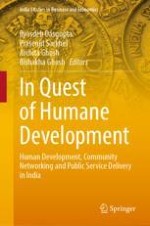2022 | OriginalPaper | Buchkapitel
2. Is the Notion of Human Development Capitalocentric?
verfasst von : Byasdeb Dasgupta
Erschienen in: In Quest of Humane Development
Verlag: Springer Nature Singapore
Aktivieren Sie unsere intelligente Suche, um passende Fachinhalte oder Patente zu finden.
Wählen Sie Textabschnitte aus um mit Künstlicher Intelligenz passenden Patente zu finden. powered by
Markieren Sie Textabschnitte, um KI-gestützt weitere passende Inhalte zu finden. powered by
